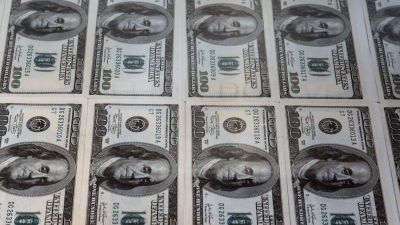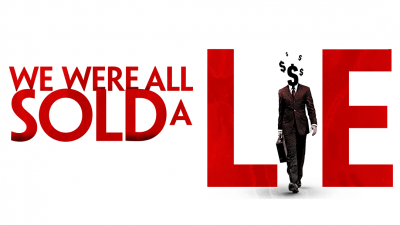We’ll be posting this roundup each week leading up to Election Day. Share your thoughts about these must-read stories and always feel free to suggest your own in the comments section.
QUOTE OF THE WEEK
“Generally speaking, it’s going to be a very strong year from a television advertising perspective, primarily thanks to political advertising… We expect $200 million of gross political revenue this year.”
—Eddie Lazarus, Chief Strategy Officer & General Counsel, Tribune Media Company
[h/t: Lee Fang for The Intercept]
CAMPAIGN CASH SNAPSHOT
CHART OF THE WEEK
An overwhelming majority of the spending by outside groups in the California primary went toward bolstering Bernie Sanders’ campaign for the Democratic nomination. National Nurses United for Patient Protection — a pro-Sanders group representing the National Nurses Union, which has roughly 185,000 members — began ramping up efforts on Sanders’ behalf in April, eventually pouring over $2 million into advocacy that focused largely on print advertising.
The second biggest slice of the independent-expenditure pie came from conservative groups opposing Clinton, and also went largely toward print and online advertising. The Wesleyan Media Project, which tracks advertising in political elections, confirmed that in the California primary, most television advertising was funded by the candidates themselves.
STAT OF THE WEEK
$16 million
That’s the amount that a new dark money group plans to spend to keep the Senate in Republican hands. Called “One Nation,” the group was launched by a former chief of staff to Mitch McConnell and will not reveal the donors behind the money it plans to spend in key competitive races, including New Hampshire, Ohio, Nevada, Pennsylvania and Missouri. Add that $16 million to the $42 million Koch-affiliated groups plan to spend on the Senate, and Republicans are beginning to accrue a formidable dark money war chest. And that’s just the money we know about. We’re talking dark money, remember?
RACE OF THE WEEK
We expect our judges to be impartial and apolitical — so it might be surprising that a judicial primary in North Carolina, with relatively light voter turnout, drew endorsements from the state’s Republican governor and well-heeled interest groups in Washington. Bob Edmunds, a conservative justice on the state’s Supreme Court, is up for reelection, and on Tuesday stood in a primary against three opponents, all with records to the left of his. (In North Carolina, the top two finishers in the Supreme Court primary, regardless of party affiliation, advance to the general election.)
Gov. Pat McCrory urged Republicans to turn out and vote for Edmunds, and the North Carolina Chamber of commerce also got involved, airing an ad that cost it $450,000. Fortunately for the state chamber, it didn’t have to foot the bill. Two Washington, DC-based conservative groups, the Judicial Crisis Network and the Institute for Legal Reform, an arm of the US Chamber of Commerce, ponied up the money. Edmunds came in first in Tuesday’s primary balloting, winning a slot on November’s general election ballot.
[h/t: Alex Kotch for Facing South]
DONOR OF THE WEEK
Robert Mercer, an eccentric hedge fund billionaire and one of 2016’s top donors, is considering backing Donald Trump. During the Republican nomination fight, Mercer spent more than $16 million, most of it supporting the unsuccessful presidential bid of US Sen. Ted Cruz (R-TX). His funds made up the majority of the money spent by one Cruz super PAC, Keep the Promise I. But now, Bloomberg reports that Trump supporters are courting Mercer to become an anchor-donor for a not-yet-formed pro-Trump super PAC.
MUST-READS FROM AROUND THE WEB
• “Military donors salute Sanders, show little support for Trump,” by Emma Baccellieri, OpenSecrets.
• “Bernie’s legacy: One of the most valuable donor lists ever,” by Shane Goldmacher, Politico.
• “Top Washington Lobbyist Slow To Disclose Relationship With Saudi Arabia,” by Andrew Perez, MapLight.
• “Why the donor class still matters: An exclusive look at the insidious effects of money in politics,” by Sean McElwee, Salon.
• “Who’s Who: Meet the Super PACs Backing Donald Trump,” by Rebecca Ballhaus, The Wall Street Journal.
MORE MONEY-IN-POLITICS REPORTING FROM BILLMOYERS.COM
• “Wasserman Schultz Has a Change of Heart, But Too Little, Too Late,” by Bill Moyers and Michael Winship
• “Missouri Could Be the Show-Down State for Money in Politics This Fall,” by Jo Mannies
• “Campaign Finance Reformer Tom Udall Seeks Republican Allies,” by Kathy Kiely
• “Money Merry-Go-Round: Emails Show How Wall Street Execs and Alums Crafted Trade Bill,” by Kathy Kiely
• “All the Presumptive Nominee’s Men,” by Michael Winship




